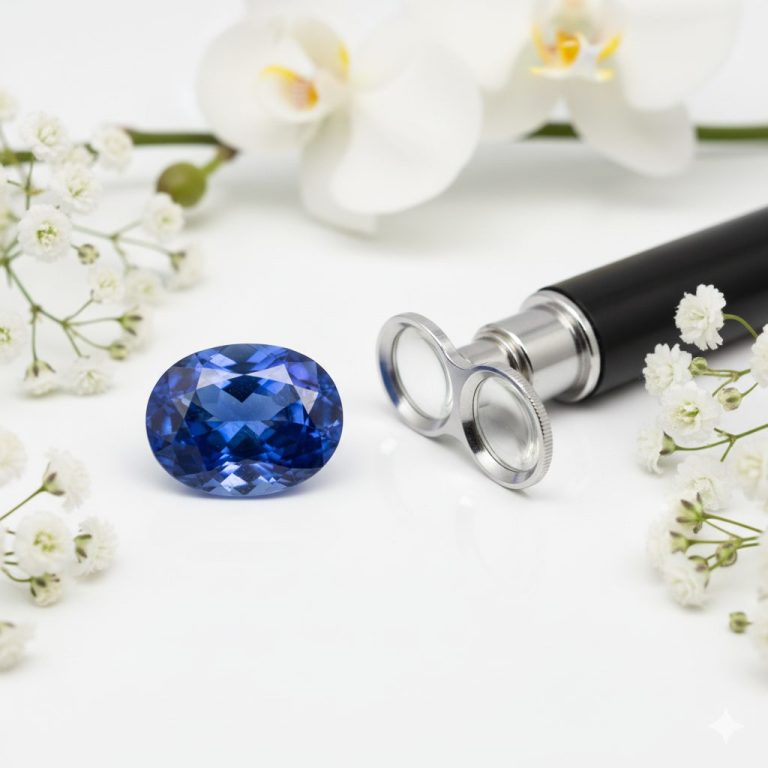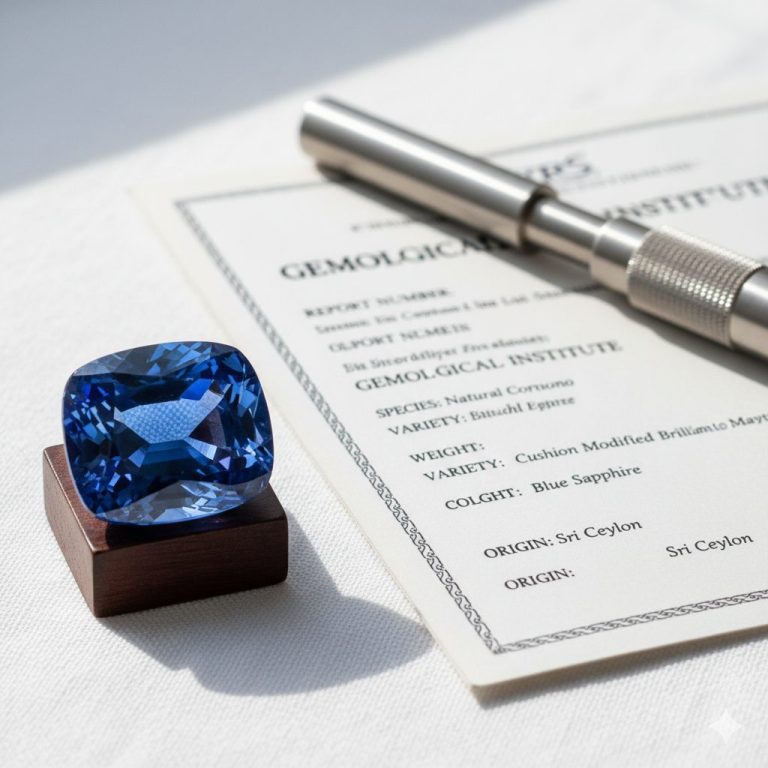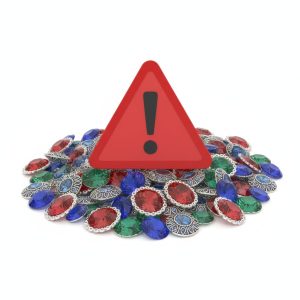Is It Safe to Buy Gemstones Online?

Let’s Be Honest… Buying Gems Online Feels Scary
I’ll be straight with you, if you’ve ever hovered over that “buy now” button for a gorgeous sapphire or emerald online, only to chicken out, you’re not alone. I’ve done the exact same thing when I was younger. It’s tempting, right? The photos sparkle, the price looks fair, and the idea of having a gem shipped right to your doorstep feels almost too good to be true.
And sometimes…it is.
That’s the tricky part. While it is safe to buy gemstones online, it’s also easy to get burned if you don’t know the rules of the game. Over the years, I’ve sold Ceylon sapphires to collectors in Europe, investors in the U.S., and even a few travelers who found me online after their trip to Sri Lanka. I’ve also met heartbroken buyers who got scammed by fake sellers and brought me stones they thought were natural only for me to tell them they were glass. Ouch.
So, let me walk you through how to do this properly, the red flags to avoid, and how you can shop online with confidence.
When Buying Gems Online Actually Works
Here’s the good news: people buy gemstones online every single day and many of them are happy with what they get. The secret? Choosing the right sellers.
That’s the tricky part. While it is safe to buy gemstones online, it’s also easy to get burned if you don’t know the rules of the game. Over the years, I’ve sold Ceylon sapphires to collectors in Europe, investors in the U.S., and even a few travelers who found me online after their trip to Sri Lanka. I’ve also met heartbroken buyers who got scammed by fake sellers and brought me stones they thought were natural only for me to tell them they were glass. Ouch.
So, let me walk you through how to do this properly, the red flags to avoid, and how you can shop online with confidence.

When Buying Gems Online Actually Works
Here’s the good news: people buy gemstones online every single day and many of them are happy with what they get. The secret? Choosing the right sellers.
It’s usually safe when:
- The seller is established and has real reviews (not the kind they wrote for themselves).
- The gem comes with proper certification (GIA, IGI, GRS, AGL, or Sri Lanka’s NGJA—yep, that’s our own).
- You get proper product details cut, color, carat, clarity, origin, and whether it’s treated.
- There’s transparency: natural light photos, clear videos, maybe even a 360° view.
- You see return/refund policies and secure payment options.
For example: one of my German clients once asked for a 2 carat unheated sapphire. Instead of sending just one photo, I sent her five, plus a short video under daylight. I also included the certificate too, so she could verify it herself. Guess what? She bought it, and months later, she came back for a second stone. That’s how online buying should feel.
Things You Must Check Before You Buy
Let’s break this down into simple checks:
1. Seller’s Reputation
Google their name. Check forums. Look on Trustpilot.
Do they have a physical shop, or are they only hiding behind an Instagram account?
Have they been around for years or just a few months?
2. Certification (Non-Negotiable!)
Think of a gem certificate like a passport. Without it, you’re basically traveling with no ID. Always insist on third party certificates. Avoid vague “in-house reports.”
3. Product Details
The 4Cs (color, cut, clarity, carat) matter, but so do:
Origin (Ceylon, Burma, Madagascar, etc.).
Treatments (heated vs. unheated).
Size and proportions.
4. Real Photos & Videos
If all you see is one studio photo with heavy editing… run. Ask for:
Multiple images.
Video in natural daylight.
Side views, not just the “pretty face.”
5. Policies That Protect You
Clear return/refund options. Secure payments like PayPal or credit card. And yes make sure someone actually replies to your emails or WhatsApp messages.
Watch Out for These Red Flags
Here’s where people often get trapped:

Synthetic stones passed as natural.
“Ceylon sapphire” claims without proof. (Trust me, as a Sri Lankan trader, I see this daily. Not every blue sapphire is from here.)
Prices that are way too cheap.
Photos that look unnaturally glowing.
Fake certificates. (Tip: check the lab’s website with the report number.)
Sellers who dodge questions.
My Top Tips for Buying Gems Online Safely
Here’s what I tell all my new clients:
Verify certificates – Always use the lab’s official website.
Compare prices – If one seller is way below market, be cautious.
Start small – Test the seller with a lower value gem first.
Use escrow – Especially for high value stones.
Learn a bit – Even basic knowledge of sapphires, rubies, or emeralds goes a long way.
FAQ: Buying Gemstones Online
Is it really safe to buy gemstones online?
Yes, but only from sellers with proper certification, reputation, and transparency.
How do I know if the certificate is real?
Enter the certificate number on the lab’s website (like GIA Report Check)..
Why are some online gems so cheap?
Usually because they’re synthetic, treated heavily, or misrepresented.
Should I stick to big companies?
Not always. Many small traders (like me!) are trustworthy—just make sure they provide proof.
Final Thoughts: Safe, If You’re Smart
So, is it safe to buy gemstones online? Absolutely but not blindly. The internet can connect you with stunning stones from Sri Lanka, Burma, or Madagascar, but it’s also full of fakes.
If you do your homework, ask questions, and only buy from sellers who are transparent, you’ll not only avoid scams you’ll actually enjoy the process.
And hey, if you’ve bought a gemstone online before, I’d love to hear your story. Was it a gem of a deal, or a lesson learned the hard way? Drop it in the comments you might just help the next buyer.
Thinking to Buy Gemstones Online?
We’re here to help you shop with confidence. Join our social media family for gemstone insights, updates, and authentic collections.


